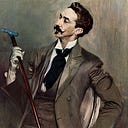Pierre Bourdieu On Pierre Bourdieu
A posthumous release, Esquisse pour une auto-analyse finds the prolific French intellectual summarizing his career for those who want to understand how Bourdieu became Bourdieu
French sociologist Pierre Bourdieu’s influence on the social sciences, and particularly on his main discipline of sociology, is indisputable. Those who have read his contributions to the field will recognize, for example, Bourdieu’s handling of the concept of the habitus and his work on social class and aesthetic taste in Distinction (1974). A less likely but just as important contribution Bourdieu made was the presence of his ideas on French literature, inspiring literary giant Annie Ernaux and contemporary authors such as Édouard Louis and Nicolas Mathieu. Bourdieu’s research questions inspired these people to interrogate their own lives (or those of fictional characters modeled after people they grew up around) and critique the ever-present class divide in France and enhance it with critiques of racism, homophobia, and gender inequality. The fact that the analysis of social class never quite faded in the French cultural sphere only speaks of the durability of Bourdieu’s theories, which even in a world that looks radically different from the one in which he wrote his ideas has persisted. Even Bourdieu himself ended up adapting some of his ideas for a different kind of project. Late in his career, Bourdieu himself wrote a chapter for a book that he entitled Esquisse pour une auto-analyse (2004, English: Sketch for a Self-Analysis) and that he released in Germany shortly before his death. Although Bourdieu admits his project shouldn’t be seen as autobiography, this brief book retraces Bourdieu’s life like autobiographical works. His words reveal much not only about his prolific career and his personal life, but about an important link between lived experiences and (scholarly) interests.
After warning readers that the Esquisse is not an autobiography, Bourdieu opens the book by explaining his current position in the academic world and how he got there. His beginnings in philosophy — a field he found disappointing — and his critiques of the rigid rules of French academia are important historical documents for those seeking to reconstruct what it looked like to circulate knowledge in France in the 20th century. Of interest to many will be his frequent name-dropping in this section; his comparison to Michel Foucault has been referenced frequently. For Bourdieu, although Foucault and him share much in terms of politics and academic interests, their academic paths would go on different directions because Foucault came from a well-off family and was a gay man. The latter is an allusion to Foucault’s study of sexuality, to be sure, while the former suggests that Foucault’s stay in philosophy departments and his engagement with abstract theory over fieldwork (as opposed to Bourdieu, who loved hands-on research) suggests that one’s background will shape their interests. There are exceptions to this rule, but it is tempting to agree with Bourdieu when one sees the wealthy pursuing paths that preoccupy themselves less with the concrete and more with the abstract. A The Atlantic article I cite very frequently in conversation shows, for instance, that wealthy college students gravitate towards the humanities more than poor students, who choose majors that lead to specific occupations. For Bourdieu this would confirm his theories and ultimately be sad since these students’ views could produce wonderful innovative insights. The fact that he became an academic in spite of his frequent skepticism of the field says much about his belief in knowledge and learning.
The most compelling section of the book is his narration of his childhood and youth. Born in the Béarn region in Southern France, Bourdieu was the child of a minor public servant (a factureur, or a “biller”) and of a housewife whose parents had a house, a sign of material comfort in the earlier 20th century. His father’s influence on his future was enormous. Witnessing working tirelessly convinced him of his need to climb the social ladder and focus on his studies, while his father’s engagement with leftist politics and the resistance made him sympathize with the plight of the rural working-class. After this brief profile of his parents, Bourdieu recounts that education for children of the poor was not an easy affair back in the day. His stay at boarding schools proved to be a humbling experience not only because these often were not well-maintained but because he would find that wealthier peers would tease him for his working-class, rural background. This inevitably resulted in a kind of shame and elitism that is hyper-present in the works of Annie Ernaux; in order to make up for his background, Bourdieu emphasized his intellectual abilities and leaned towards studying philosophy. Also like Ernaux, when Bourdieu finally was accepted by the Parisian intelligentsia, he could not avoid feeling as if he had betrayed his family, even though his family was very proud of what he accomplished. Unlearning his feelings of shame and elitism took some effort, but he came to realize that he wanted a different kind of academic experience. His arrival at sociology and his progressive views showed that he had finally reached a position where he could advocate for the disenfranchised in France.
Although Bourdieu’s Esquisse is often an academic reference-filled document that only French sociologists and historians understand, it is still a worthy read simply because of the sections where he speaks about his origins and how they led to his prolific career in sociology. When one looks at figures as imposing as Bourdieu, it is inevitable to be curious on how they arrived to their innovative conclusions. While certainly not always the case, Bourdieu’s ethnographic account insists on the fact that one’s academic and political inclinations oftentimes strongly correlate with lived experiences.
